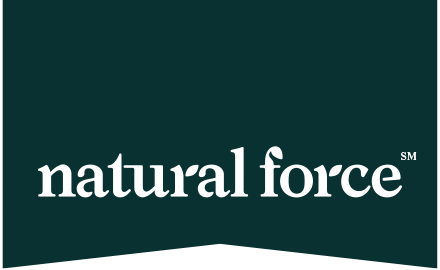Mindful Eating: The No-Diet Path to Nutritional Zen

Are you tired of jumping from one diet to another?
Have you given up on healthful eating altogether?
If you said “yes” to either of the above, I can’t blame you. It’s rough out there, and learning how to navigate a grocery store can feel like a full-time job.
But what if I told you that there was a way to cut through the confusion and get right to the meat (and vegetables) of the matter?
It might sound too good to be true, but there is a way. It's something I call Nutritional Zen, and although it's not a "quick fix" I think you’ll find that it comes naturally and stays with you for a lifetime.
In this article, you will learn:
- How truly mixed, the dietary mixed-messages are
- Why many people "take sides" and join the status-quo
- How to begin charting your own course
- How to connect to inner wisdom
- What it looks like to eat mindfully
Navigating Contradicting Dietary Theories
“Everything I eat has been proved by some doctor or other to be a deadly poison, and everything I don't eat has been proved to be indispensable for life. But I go marching on.” -George Bernard Shaw
While one headline reads “Eggs are healthy” the next one says “Eggs are linked to cancer”. According to one expert, a plant-based diet, devoid of any and all animal products is the key to ultimate health while according to another, everything’s OK… as long as it’s in moderation.
Stricken with anxiety over the eggs, butter, or fruit, that was just on your plate, you dutifully click away, consuming page after page from the endless buffet of health information offered up 24/7 in print and online.
You have a sneaking suspicion that you’re being played, but you just can’t help it. The Big Food moguls and Big Nutrition diet gurus are very good at what they do.
Nursing your fears and stoking your self-doubt, they convince you that there’s a problem and that only they can solve it. Money, time, and energy are spent and, just when you think you’ve figured “it” out, they hit you with a new diet, a new food, or a new nutrient that you absolutely need, or need to avoid.
The Status Quo
In response to the mixed messages and incessant marketing of the Big Food and Big Nutrition media machine, most people just pick a side.
Based on the quarterly profits of companies like McDonald’s, buying into Big Food is certainly the most popular option. It generally entails dismissing information about the relationship between diet and health, relying instead on stories about Great Uncle Joe who lived to 100 smoking cigars and drinking whiskey every day.
On the other side, you have smaller, but more devoted contingent dedicated to upholding the nutritional virtues of society writ large. These passionate dietary devotees present a stark contrast to the Big Food fans. Instead of dismissing the link between food and health, they believe that diet is the fix for everything from belly fat to cancer and even death itself!
Compelling stories of miraculous transformations and remissions abound, but if you look more closely, you'll see that dramatic success is proportionally rare, and while people may generally benefit from dietary interventions, just about any diet can be effective in the short term.
So between the choices of not caring at all, and caring too much, what is there?
Create Your Own Path with Mindfulness
Believe it or not, but there is a third option to the dietary dichotomy.
It is the "grey" area that lives between "black and white", it is the "nirvana" of Nutritional Zen, but before you can get there, you have to clean up your media “monkey mind”.
To do this, experiment with avoiding network TV, popular print magazines (even the fitness related ones), and other sources of media indoctrination for a couple weeks.
(Note: Cutting the cord might sound tough, but you don’t have to miss out on your favorite shows to do this! VOD services like Netflix, Amazon Prime, and Hulu Plus allow for selective media consumption, which will directly support your efforts in becoming a selective food consumer as well.)
Once you’ve removed or significantly reduced your exposure to manipulative media outlets, you can then start to cultivate mindfulness, the core practice of Nutritional Zen.
Connect to Your Inner Wisdom
Like a Google map for your inner being, mindfulness is an internal checking-in process that reconnects you to the here and now.
With mindfulness, you neither ignore nor grasp too tightly, you simply notice stimuli and then take note of the thoughts and feelings that arise.
By cultivating "the silent witness" of mindfulness, you'll cultivate inner space and responsiveness.
You may notice your reaction, such as reaching for a sugary snack the moment you start feeling stressed out, but then respond by acknowledging that it is stress you are feeling and not hunger. In the moment, you can then decide to take on your stress directly or manage it in a more effective way, such as taking a walk.
Of course, all of these mindfulness benefits only come from actually doing "the work". In other words, you can't absentmindedly be mindful.
Thankfully, you don't need anything to do this work other than the willingness to do it!
Your practice could be as simple as sitting on the floor and taking 10 deep breaths, or you could make it as complicated as taking part in a far off yoga retreat, but whatever you do, the only thing that matters is that you do it.
If you discover that you dislike yoga, give tai-chi a try, and if you can’t stand that, go for a run or take up a musical instrument. Keep exploring until you find a mindfulness practice that you personally connect with, and that is meaningful to you.
Since you're already here, reading this post, here's a 1-minute mindfulness exercise from Headspace to get you started...
Become a Mindful Eater
Think about what you just experienced. The clarity, peace, and relaxation only a few minutes and a few deep breaths provided.
Imagine if you started to bring this powerful internal force of mindfulness to other areas of your life.
Take a few, deep, mindful breaths before your next meal and you might find that you’re more in touch with internal cues like hunger and thirst.
Without being told which foods are supposed to make you feel happy, you may also start to define those relationships yourself.
If you eat something that makes you feel good, you notice and appreciate that.
If you eat something that makes you feel bad, you notice and appreciate that too.
Both comfortable and uncomfortable feelings are opportunities for learning, and each moment presents a new opportunity.
If you're finding difficulty with negative self-talk, go back to your breathing exercises.
Ingrained habits have a survival instinct, and will fight to remain present in your mind, but if you remain calm and centered, they will eventually fade away.
Make Mindfulness a Lifestyle
Unlike a 3-day detox, a 7-day cleanse, or a 30-day diet, Nutritional Zen is a lifetime practice.
It is a journey that may traverse any number of dietary changes and that will take you places you never imagined or anticipated, but through it all, you will always find yourself "coming home".
The great thing about mindfulness is that it's always there for you, and no matter how far off the path you may go, it will always lead you back.
(Want articles to live healthier via email? Here's the sign up)
